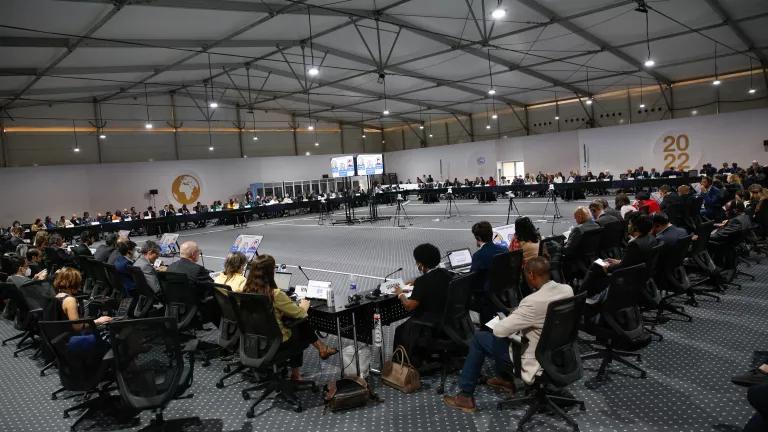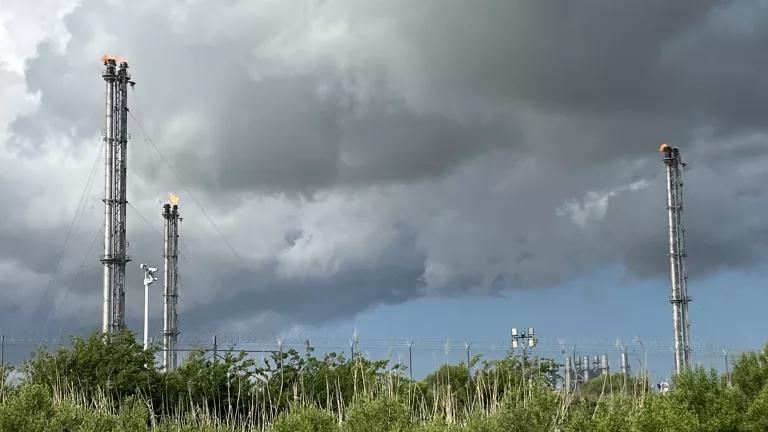Latin America Green News: Chile bikes to work, Costa Rica retires old refrigerators, and Mexico fights air pollution
Latin America Green News is a selection of weekly news highlights about environmental and energy issues in Latin America. Please note that we will not publish the Green News next week because of the Thanksgiving holiday.
November 11-16, 2012
Chile
Presidential hopefuls began staking their positions on key campaign issues this week, starting with HidroAysén and Chile’s energy policy. Former Minister of Defense Allamand initiated the dialogue by stating in a nationally televised interview that “HidroAysén is dead,” and it is not in any way “viable”. He also said that Chile needs a national consensus about its energy policy. Ex-Minister of Public Works Golborne stated that “the company should decide if it will carry on” with the project. Minister of Energy Bunster (who is not running for president) replied that “HidroAysén is not dead” and that it continues in development. Meanwhile, the Patagonia Sin Represas campaign supported Allamand’s position, and argued that the government should not be explicitly supported private projects as Bunster’s statement did. (Diario Financiero 11/15/2012, 24horas.cl 11/11/2012, La Nación 11/13/2012, El Divisadero 11/14/2012)
British and U.S. scientists forecasted that climate change will continue to cause significant melting of Chile’s ancient glaciers and will raise sea level by one meter in Chile while presenting their findings at the Universidad del Pacífico. Supported by the European Union and several international scientific centers, the experts are building an archive of historical meteorological observations from the 20th century. They aim to create tools that create public policies promoting environmental stewardship and help people prepare for emergencies caused by natural disasters. (UPI Español 11/15/2012)
A new study found that bicycle use as a means of transportation is growing 20 percent a year in Santiago. The study’s authors argued that, if public policies existed to guarantee the safety of and parking for cyclists, the numbers would grow even more. Minister of Environment Benítez said that the bicycle is “a clean mode of transport, allows for exercise, is healthy, and is an alternative that if people want to use, we have to have the facilities so that they have secure space.” (La Tercera 11/15/2012)
Minister of Public Works Silva announced a water shortage decree for the Aconcagua River basin and the Maipo River delta in the Valparaíso Region, due to a severe drought affecting the area. The decision was announced after participants in an emergency meeting, headed by the State Secretary, saw the negative effects the lack of water is having throughout the zone, but particularly on agriculture. The measure allows the Ministry of Public Works to build projects to help capture and accumulate water. (El Mercurio 11/14/2012)
Costa Rica
Costa Rica will launch an initiative to replace older, inefficient refrigerators that emit ozone-depleting HFCs, with newer and cleaner models. The program, which will start next year, is led by the Ministry of Environment and Energy in collaboration with the Costa Rican Electricity Institute. The goal is to replace 300,000 refrigerators per year for a total of 2.7 million. Initially the program will target owners who can pay for replacement models in full or through installments. Eventually it will also target owners who will need to receive a subsidy. The Ministry is already negotiating with retailers and has applied for funding from the Multilateral Ozone Fund and Global Environment Facility. The refrigerator switch-out will help lower electricity consumption by the equivalent of a 66 MW plant. The refrigerator program will also help avoid 5,437 tons of CO2 emissions. (La Nación 11/13/2012, El Financiero 11/12/2012)
The amount of land used for organic agriculture in Costa Rica has dropped by fourteen percent. In 2011, 11,115 hectares were used for organic agriculture, an all time high that represented 2 percent of all cultivation in Costa Rica. Yet by 2011, this amount fell back down to 9,570 hectares. Meanwhile, pesticide imports continue to increase since the 1990s as the agricultural sector has switched from traditional export crops to ornamental plants, melons, and pineapples that have zero pest-tolerance. (La Nación 11/13/2012). Also increasing is the number of hectares planted with transgenic crops for research or seed generation. Currently 443.1 hectares are planted with transgenic crops, mostly cotton, but also soy, banana and pineapples. None of these products are currently sold within Costa Rica. (El Financiero 11/14/2012)
Mexico
Mexico, the U.S.’s second largest source of imported oil, has decided to implement a greener domestic energy goal, following in the footsteps of Saudi Arabia, the U.S.’s leading source of imported oil. President Calderón announced his hope the Mexico would generate 30 percent of its energy from renewable sources by 2020 and 50 percent by 2050. Industry insiders say wind power will play a critical role in this growth, with the potential capacity of 20 GW at prices competitive with gas. (OilPrice.com 11/11/12)
Mexico opened the first rapid recharging station for electric cars in Latin America. Located in Mexico City, the station can recharge an electric car 80 percent in 30 minutes, and the cost for a 100 percent charge is 75 pesos. The opening of this station is part of a larger effort by the Secretary of Environment, Martha Delgado Peralta, to reduce the pollution caused by transportation, which now amounts to 98 percent of the country’s carbon monoxide emissions, 50-70 percent of its nitrous oxide emissions and 40 percent of its carbon dioxide emissions. (Noticieros Televisa 11/15/12)
Citizens in Mexico City have joined together to reduce the pollution of the city through various successful efforts. Concerted efforts by the city government and citizens have reduced Mexico City’s air pollution significantly from where it was 20 years ago, when the city was voted the most contaminated city in the world by the UN. Thanks to these efforts, Mexico City’s standing has since dropped to 10th place. The city created emission regulations, planted half a million plants around the city, extended its bike sharing service, and exchanged old buses for ones that run on natural gas or electricity. This year, a new fleet of electric taxis hit the city, recharging in stations that get 25 percent of their energy from solar power. Individuals have contributed as well by planting vegetables on their balconies and roofs, encouraged by the town hall and multiple organizations which provide free advice, seeds and soil. (Prensa Libre 11/16/12)
The Ministry of Environment and Natural Resources (Semarnat) and the National Institute of Ecology and Climate Change (INECC) released two essential documents for Mexico’s future climate change policy and development planning. The first establishes the procedures and policy tools that are necessary to strengthen Mexico’s adaptation capabilities. The second helps to identify a development path and estimates the potential decrease in greenhouse gas emissions. These documents represent an important benchmark in the country’s Special Climate Change Special Program 2009-2012, and lays the groundwork for the adaptation component of the National Climate Change Strategy. (Portal – Diario de Toluca 11/13/12)
Regional: Argentina
Argentina has great potential for shale gas production, according to experts at an international fuels congress in Buenos Aires. The Technology Area Manager of the national petroleum company, YPF, Gustavo Bianchi, said that the company intends to exploit these alternative resources, which are the third largest in the world, behind China and the U.S. The governor of the Argentine province of Neuquen, Jorge Sapag, foresees drilling close to 1,000 non-conventional hydrocarbon wells. He announced a new proposal that would install a 2 MW wind turbine for every 10 of those wells. (AmericaEconomia 11/7/2012, Business News Americas 11/15/2012)
For more news on the issues we care about visit our Latin America News archive or read our other International blogs.




